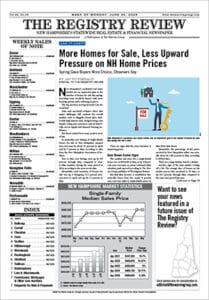Federal Reserve Chair Jerome Powell says that inflation “will likely remain elevated in coming months” before “moderating,” an apparent acknowledgement that price gains have been larger and more persistent than many economists forecast.
In written testimony to be delivered Wednesday at noon before the House Financial Services Committee, Powell reiterated his long-held view that the high inflation readings over the past several months have largely been driven by temporary factors, such as supply shortages and surging demand, as pandemic-related business restrictions ease.
Yet Powell did not repeat an assertion he made just three weeks ago before another House panel, that as the trends pushing prices higher faded, inflation would “drop back” to the Fed’s goal of 2 percent.
Powell’s remarks come just a day after a government report showed that prices paid by U.S. consumers surged in June by the most in 13 years. It was the third straight month inflation has jumped. Excluding volatile food and energy costs, so-called core inflation rose 4.5 percent in June, the fastest pace since November 1991.
Much of the gain was driven by categories clearly affected by the reopening of the economy and related supply shortages, with used car price increases accounting for about one-third of the jump. Prices for hotel rooms, airline tickets, and car rentals also rose substantially.
“The fact that the recent run-up in inflation has been dominated by a few categories should give the Fed leadership continued confidence in their view that it is mostly a transitory increase, a view which the market apparently shares,” Michael Feroli, an economist at JPMorgan Chase, said this week.
But some increases could persist. Restaurant prices rose 0.7 percent in June, the largest monthly rise since 1981, and have increased 4.2 percent compared with a year ago. Those price increases likely are intended to offset higher wage and food costs as restaurants scramble to fill jobs.
And inflation at the wholesale level jumped 1 percent in June, pushing price gains over the past 12 months up by a record 7.3 percent, according to a Labor Department report this morning. Nearly 60 percent of the gain in wholesale prices in June reflected a jump in the cost of services, led by higher margins received by wholesalers and retailers. Food costs at the wholesale level were up 0.8 percent while energy costs rose 1 percent in June.
Core inflation, which excludes food and energy and the trade margins, rose 0.5 percent in June following a 0.7 percent rise in May.
In his testimony, Powell was upbeat about the economy, with growth on track “to post its fastest rate of increase in decades.”
He said hiring has been “robust” but noted there “is still a long way to go,” with the unemployment rate elevated at 5.9 percent. That indicates that Powell supports continuing the Fed’s low-interest rate policies.
The Fed has said it will keep its short-term interest rate pegged at nearly zero until maximum employment has been reached and inflation is at 2 percent and on track to moderately exceed that pace for some time.
It is also buying $120 billion in Treasurys and mortgage-backed bonds each month to lower longer-term interest rates to encourage more borrowing and spending. The Fed has said it will continue to make those purchases until “substantial further progress” has been made toward its goals.


